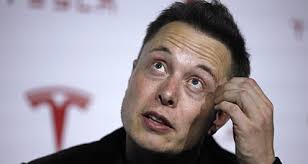
Breaking News
 Dr Pollan at Harvard has cured schizophrenia using keto diet
Dr Pollan at Harvard has cured schizophrenia using keto diet
 We are winning. Big Pharma is finding it too difficult to get new vaccines approved under Trump
We are winning. Big Pharma is finding it too difficult to get new vaccines approved under Trump
 Abortion drugs discovered in Bill Gates' vaccines
Abortion drugs discovered in Bill Gates' vaccines
 Ask yourself how we've gotten here, then ask yourself why no one seems to care.
Ask yourself how we've gotten here, then ask yourself why no one seems to care.
Top Tech News
 Drone-launching underwater drone hitches a ride on ship and sub hulls
Drone-launching underwater drone hitches a ride on ship and sub hulls
 Humanoid Robots Get "Brains" As Dual-Use Fears Mount
Humanoid Robots Get "Brains" As Dual-Use Fears Mount
 SpaceX Authorized to Increase High Speed Internet Download Speeds 5X Through 2026
SpaceX Authorized to Increase High Speed Internet Download Speeds 5X Through 2026
 Space AI is the Key to the Technological Singularity
Space AI is the Key to the Technological Singularity
 Velocitor X-1 eVTOL could be beating the traffic in just a year
Velocitor X-1 eVTOL could be beating the traffic in just a year
 Starlink smasher? China claims world's best high-powered microwave weapon
Starlink smasher? China claims world's best high-powered microwave weapon
 Wood scraps turn 'useless' desert sand into concrete
Wood scraps turn 'useless' desert sand into concrete
 Let's Do a Detailed Review of Zorin -- Is This Good for Ex-Windows Users?
Let's Do a Detailed Review of Zorin -- Is This Good for Ex-Windows Users?
 The World's First Sodium-Ion Battery EV Is A Winter Range Monster
The World's First Sodium-Ion Battery EV Is A Winter Range Monster
 China's CATL 5C Battery Breakthrough will Make Most Combustion Engine Vehicles OBSOLETE
China's CATL 5C Battery Breakthrough will Make Most Combustion Engine Vehicles OBSOLETE
Spacex could relaunch a first stage booster in March and is working towards dozens ...

After a test-firing in late January, 2017 one the boosters that have been successfully landed by Spacex is now being transported to Cape Canaveral in preparation for the SES launch, tentatively scheduled for March. Other SpaceX rockets not slated for re-launch have undergone as many as seven test-firings.
Reuse is "just as fundamental in rocketry as it is in other forms of transport – such as cars or planes or bicycles," Mr. Musk said in a briefing after last year's April launch.
Imagine if you could only use an automobile once, driving to your destination, and then buying another to return home. Only the richest of the rich would be able to go on road trips in such a world. Now imagine that car costs from tens to hundreds of millions of dollars.
"There are ongoing challenges in translating a reused rocket to tangible capex savings – worries about it failing, insurance implications, retrofitting turnaround, building up a critical mass of reused first stages in the warehouse," Jefferies International LLC, an investment bank covering telecommunications satellites, wrote in a report studying SpaceX's costs.
In addition to the substantial added costs of insurance, testing, and refurbishing, landing a rocket takes more fuel too. As much as 30 percent more propellant, according to French space agency CNES. That's more weight the engines need to hoist into space, where kilograms don't come cheap.



